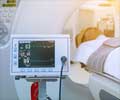Exposure to four or more CT scans before adulthood more than doubles the risk of developing brain tumors, leukemia, and non-Hodgkin lymphoma.
- Two to three CT scans may elevate the risk of intracranial tumors in children, while four or more scans can increase the risk of intracranial tumors, leukemia, and non-Hodgkin lymphoma by more than two times
- Younger children appeared to be more at risk of developing cancer from repeated CT scans
- Hence, unnecessary CT scans should be avoided, and special attention should be paid to patients who require repeated CT scans
Radiation exposure from CT scans in childhood and subsequent risk of leukaemia and brain tumours: a retrospective cohort study
Go to source). The use of CT scans has increased globally in recent years, but there has been conflicting evidence regarding the potential risks of cancer in children who receive these scans. CT scans use low-dose radiation, which can damage cells, leading to concerns about their safety in pediatric patients.
The study found that for one CT scan, there was no increased risk of any of the cancers compared with no exposure. However, children who received two to three CT scans had an increased risk of intracranial tumors. Those who received four or more CT scans had a more than twofold risk of developing intracranial tumors, leukemia, and non-Hodgkin lymphoma.
Unlocking Insights: Unveiling Parallel Evidence
There have been several studies on the potential risks associated with CT scans in pediatric patients. One study conducted in the United States found that children who received CT scans before the age of 5 had a higher risk of developing brain tumors and leukemia compared to those who did not receive CT scans (1✔ ✔Trusted SourceRadiation exposure from CT scans in childhood and subsequent risk of leukaemia and brain tumours: a retrospective cohort study
Go to source).
Another study in the UK found that children who received CT scans had a higher risk of developing leukemia and brain tumors, with the risk increasing with the number of scans (2✔ ✔Trusted Source
Augmented post-remission therapy for a minimal residual disease-defined high-risk subgroup of children and young people with clinical standard-risk and intermediate-risk acute lymphoblastic leukaemia (UKALL 2003): a randomised controlled trial
Go to source).
A study in Australia found that CT scans in children were associated with a small increased risk of cancer, with the risk being highest in those who received scans at a young age and those who received multiple scans (3✔ ✔Trusted Source
Cancer risk in 680 000 people exposed to computed tomography scans in childhood or adolescence: data linkage study of 11 million Australians
Go to source). Similarly, a study in Canada found that children who received multiple CT scans had an increased risk of developing brain tumors (4✔ ✔Trusted Source
Risk of cancer from occupational exposure to ionising radiation: retrospective cohort study of workers in France, the United Kingdom, and the United States (INWORKS)
Go to source).
Preserving Health via Informed Decision-Making in Medical Imaging
The authors of the study, including Dr. Yu-Hsuan Joni Shao from the College of Medical Science and Technology at Taipei Medical University in Taiwan, urge the importance of radiation protection strategies, as addressed by the International Atomic Energy Agency. They recommend that unnecessary CT scans should be avoided, and special attention should be given to patients who require repeated CT scans.Although these cancers and tumors are rare, the authors suggest that healthcare providers consider using radiation-reducing techniques and exercising caution when using CT scans in children.
References:
- Radiation exposure from CT scans in childhood and subsequent risk of leukaemia and brain tumours: a retrospective cohort study - (https://www.ncbi.nlm.nih.gov/pmc/articles/PMC3418594/)
- Augmented post-remission therapy for a minimal residual disease-defined high-risk subgroup of children and young people with clinical standard-risk and intermediate-risk acute lymphoblastic leukaemia (UKALL 2003): a randomised controlled trial - (https://www.thelancet.com/journals/lanonc/article/PIIS1470-2045(14)70243-8/fulltext)
- Cancer risk in 680 000 people exposed to computed tomography scans in childhood or adolescence: data linkage study of 11 million Australians - (https://www.bmj.com/content/346/bmj.f2360)
- Risk of cancer from occupational exposure to ionising radiation: retrospective cohort study of workers in France, the United Kingdom, and the United States (INWORKS) - (https://www.bmj.com/content/351/bmj.h5359)
Source-Medindia















